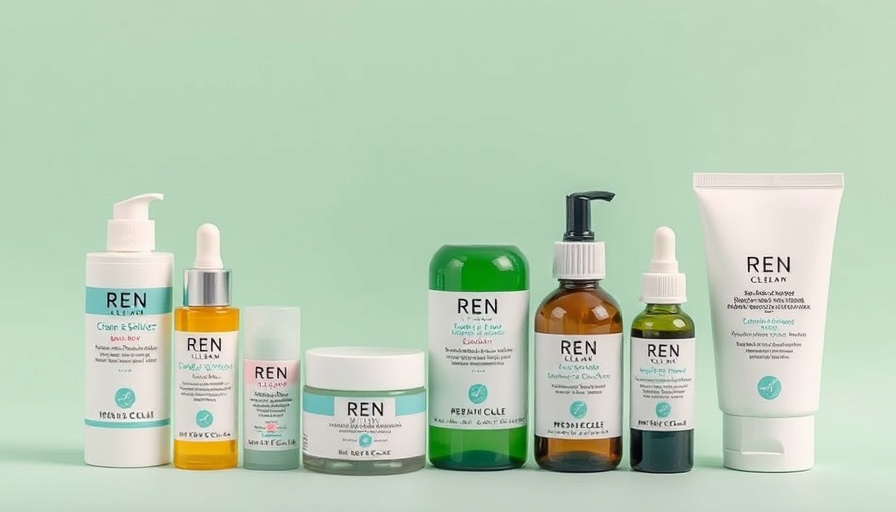
Why Unilever Shuttered REN: A Cautionary Tale for Conscious Consumers
Last week, Unilever made an unexpected announcement about the closure of its REN Clean Skincare brand, a pioneer in the natural beauty sector. This decision, which will see the brand cease operations by the end of the third quarter, comes amid a backdrop of internal hardships and market challenges.
Founded in 2000 by Antony Buck and Robert Calcraft, REN Clean Skincare carved a niche for itself as a leader in clean beauty—a movement that has gained exponential traction in recent years. Despite its innovative approach and commitment to sustainability, REN was unable to withstand the complexities of a changing market, especially after being acquired by Unilever in 2015. As they've since indicated, internal changes and market pressures hindered the brand's long-term viability.
Lessons from REN’s Closure: What It Means for the Beauty Industry
The lack of a successful buyer for REN highlights significant lessons in brand management and market expectations, especially for younger brands looking to make a mark.
Joel Palix, a beauty industry expert, emphasizes that the departure of original founders can diminish the drive and focus needed for a brand to thrive. When REN lost its youthful visionary leadership, it faced an identity crisis that left it vulnerable within Unilever's expansive portfolio. Despite its legacy, REN struggled to find a clear market position compared to stronger brands like Dermalogica.
Palix suggests that companies looking to acquire impactful brands should prioritize phased acquisitions that allow founders to remain involved, thus preserving the brand’s unique vision and operational integrity.
The Importance of Innovating Beyond Natural Claims
While being labeled as “natural” initially created a competitive edge, consumers today crave more than just clean labels. They are savvy and willing to invest in products that offer real results and innovation. Amidst fierce competition, merely being ‘clean’ isn't a guarantee for success. Brands need to prove efficacy and continually evolve to meet consumer expectations that are shaped by a plethora of choices.
The State of the Beauty Market: Identity Crisis and Evolving Standards
Consider the broader implications of REN’s closure in the current beauty landscape. In a market underpinned by shifting consumer priorities and an influx of indie brands, established names face an identity crisis. The focus has shifted towards brands that seamlessly blend innovation with sustainability and transparency.
REN’s closure reinforces the need for brands to maintain strategic clarity. Shifts in direction—or a lack thereof—can alienate core audiences, diminishing brand loyalty. Up-and-coming brands can take heed; maintaining a clear purpose and vision is critical for survival in this crowded space.
What This Means for Conscious Consumers
For conscious consumers, the closure of REN Clean Skincare serves as a poignant reminder: paying attention to brand stories and their evolution is just as crucial as the products themselves. It's essential to support brands that prioritize sustainability, innovation, and transparency in their practices.
Furthermore, this development challenges consumers to be more discerning in their choices, looking beyond labels to understand the commitments brands are making when it comes to the environment, community, and product integrity.
In times of change, conscious consumers have the power to drive brands toward better practices. Let’s advocate for companies that not only align with our values but also listen to what the market is saying about clean products and sustainable practices. Through thoughtful consumption, we can collectively shape the future of beauty.
As REN’s story comes to an end, take this opportunity to reflect on the brands you choose to support and the impact they have on our world. Stay informed about your beauty product purchases and always look for brands that share your commitment to sustainability.
 Add Row
Add Row  Add
Add 




 Add Row
Add Row  Add
Add 

Write A Comment